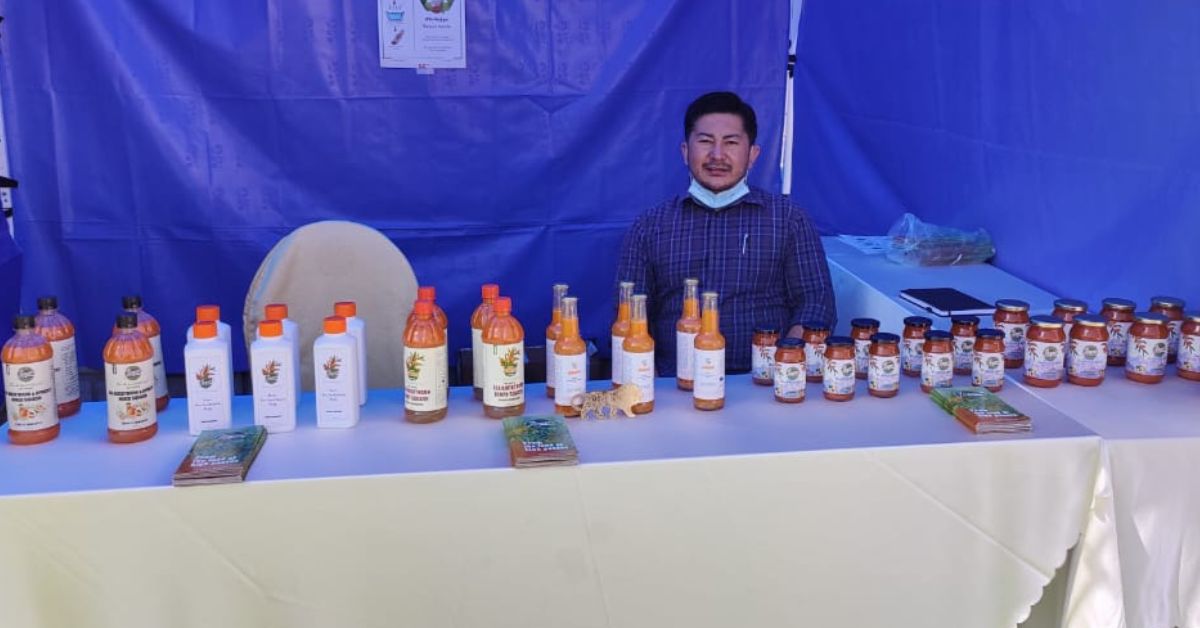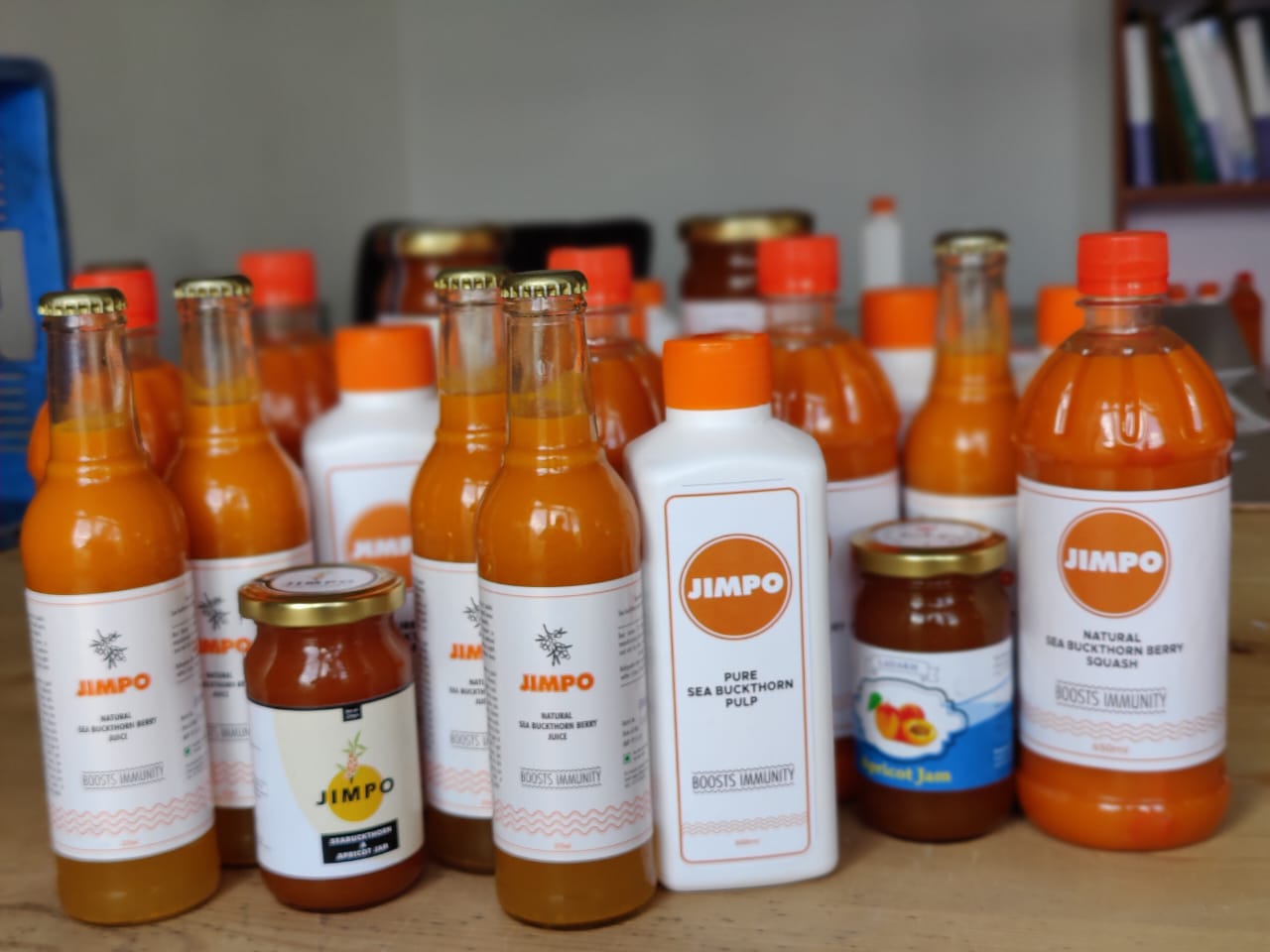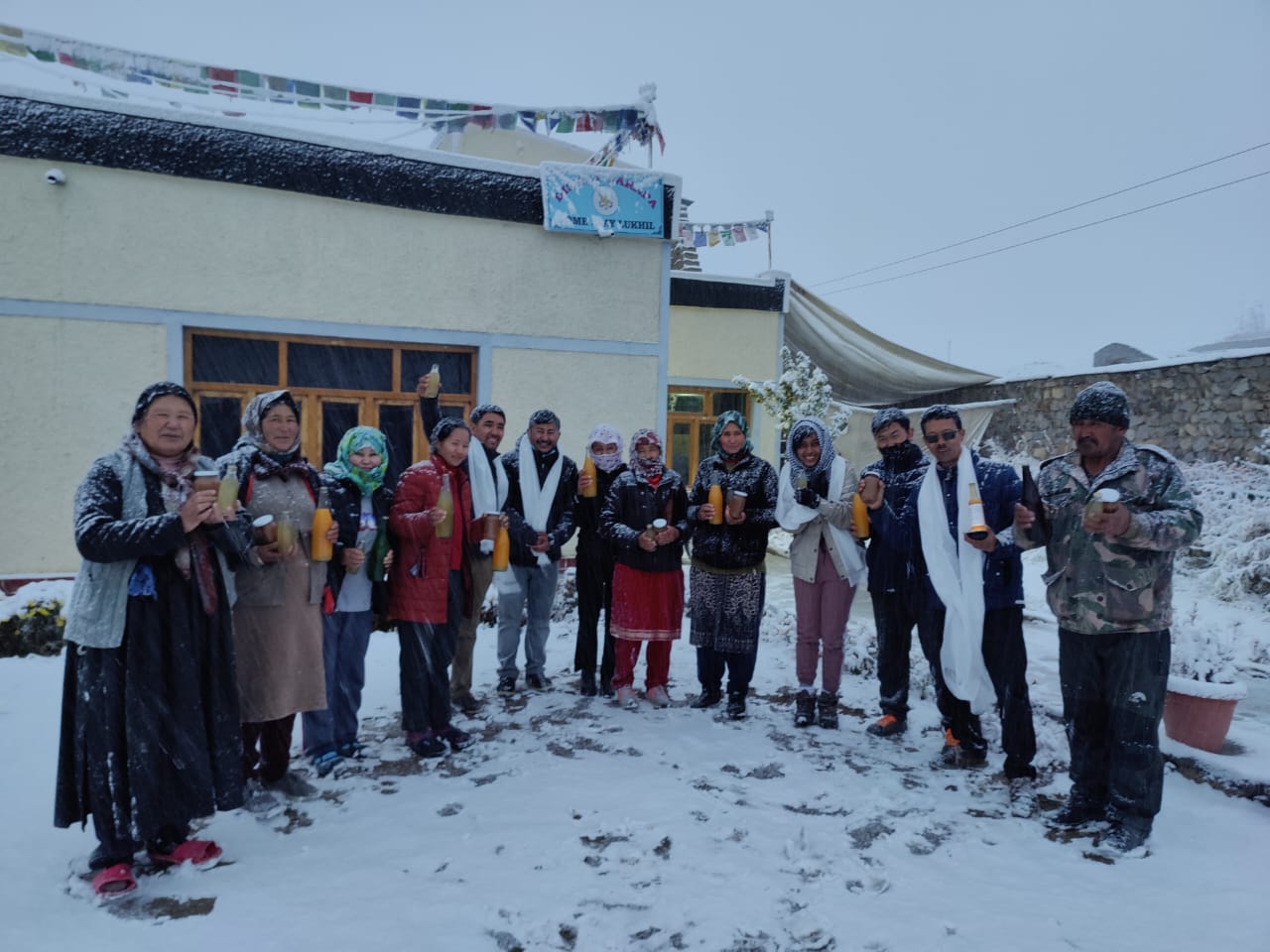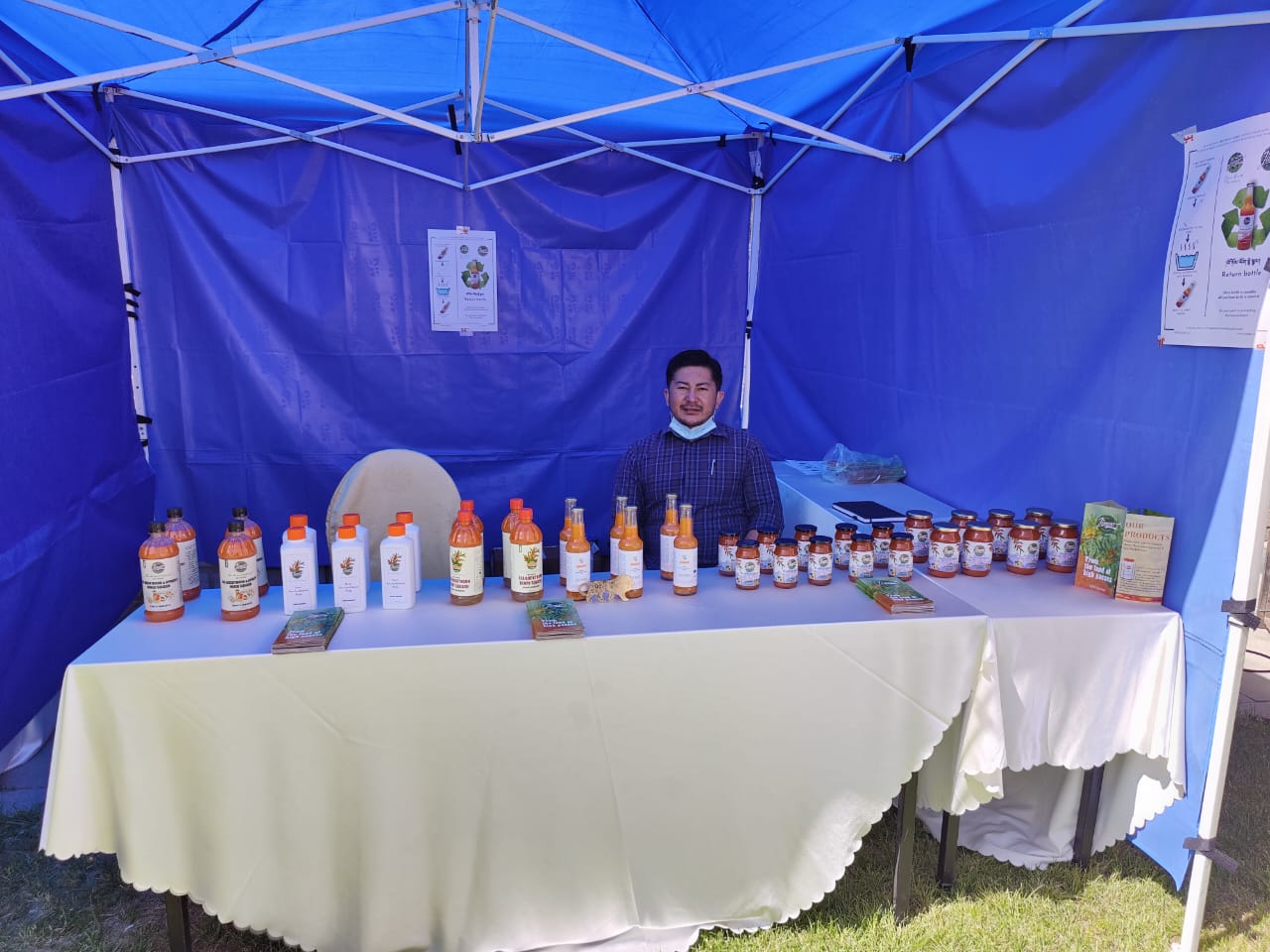MBA Grad Bottles Ladakh’s ‘Miracle’ Sea Buckthorn in Juices, Jams; Earns Rs 10 Lakh/Year
When Ladakh resident Thinles Singhey discovered the nutritional and medicinal benefits of the sea buckthorn berry, he started ‘Jimpo’ to make and sell products made from the ‘magical plant’.

The year was 2016.
Thinles Singhey, a 35-year-old resident of Ladakh, who was pursuing his MBA in Human Resource Management from the Central University of Jammu at the time, was back home for the holidays.
It was during this time that he had a chance encounter with a traveller from Kerala, who was also a practising doctor. As the two got talking, the conversation turned towards the local flora, and they bonded over a mutual love for local herbs and plants with potential.
Intent to share the potential of North India in this domain, Thinles began talking about the sea buckthorn and all it had to offer. A few weeks later, while the doctor returned to Kerala and his practice, these conversations left Thinles feeling restless.
“Having spoken so much about the wonderful berry, it got me thinking about how amazing it would be to start a small venture making juices and other products from this,” Thinles tells The Better India. “That was the moment that Jimpo was conceived.”
Jimpo in Ladakhi translates to ‘Tasty’ or ‘Tasty treat’.

A gem in North India
Also known as a ‘magical plant’ in North India, sea buckthorn belongs to the berry family. It is said to be one of the only plants on the face of the earth that contain all types of omegas — omega – 3, 6 and 9 and rare omega 7 — which helps in bodybuilding and maintaining a healthy body.
A prime energy source, omega helps keep the heart, lungs, blood vessels and immune system working the way they should.
Science also suggests that the plant is a storehouse of nutrition with its leaves, roots and shoots containing biologically active substances that regulate metabolism. To add to this, the polyunsaturated fatty acid content, provitamins A, C and E, and high levels of carotenoids make the plant a wonderful addition to the diet.
Thinles adds his own learnings to these claims through the research he conducted.
“I understood that the berry has twelve times more vitamin C than an orange and helps with diseases like scurvy in remote areas of Ladakh. This is important as the vegetation is very scarce during the winter months and people need all the nutrients they can get.”
Whilst on his quest to optimise the benefits of the berry for his startup, Thinles says he was glad to learn about policies in the region that encouraged the growth of sea buckthorn.

“Other than Ladakh, sea buckthorn is grown in the Lahual-Spiti region in Himachal and Gilgit Baltistan region in PoK. Other than the horticulture department, DIHAR (Defence Institute of High Altitude Research), the life-science wing of DRDO does research and helps local entrepreneurs.”
He adds that noticing the buzz among the locals around this plant as well as the importance attached to cultivating it from the government, he decided to focus on food processing, particularly beverages, through his startup Jimpo.
The creation of Jimpo
Elaborating on how he set up the brand, Thinles says, “With the help of a friend who had graduated in fine arts from Delhi University, we designed the labels. And with a little help from my stint at Confederation of Indian Industries (CII) [before the lockdown] we sourced the bottles and labels and other machinery.”
When the first batch of the product was released, the youth of Ladkah were quick to show their love for this homegrown business. Thinles recounts how they began sharing the word across social media, and this he says contributed to a major part of the sales.
With this popularity and the well-known health benefits of the berry, Thinles says Jimpo became a brand of Ladakh.
While it took three years to establish the whole setup, they are constantly trying to improve the products and also expand market reach. The two hero fruits of Jimpo are apricot and sea buckthorn which they source from the villages around Ladakh.

Along the way, Jimpo has also made way for sustainability.
“On our journey, we met Zero Waste Ladakh, and they made us understand the importance of recycling. So we started recycling glass bottles. Now we buy back empty glass bottles from the stores and restaurants,” he adds.
Speaking about the products, Thinles says that currently there are three — Jimpo juice (a ready-to-drink beverage containing sea buckthorn pulp), Jimpo Squash (a concentrated drink), Jimpo Pure Pulp (pure raw pulp of sea buckthorn), and Jimpo Jam (a mix of apricot and sea buckthorn).
These are being relished by people across Mumbai, Delhi, Bangalore, Hyderabad and Chennai.
But while the venture is an amazing step, being based in North India does bring along its own challenges. The major one, says Thinles, is the issue of transportation.
“We have to bring everything from Delhi (bottles, labels, packaging material, etc). Due to Ladakh being in a remote location, we have to wait and plan out our expansion in a phased manner. We cannot simply launch once and then ask our customers to wait for the road to open for the next shipment. Air transportation is not feasible as they don’t carry liquid items for security reasons,” he notes.
He adds that they are hopeful with new outlets and communication channels, this problem too will get resolved. The UT government, he says, is currently helping local entrepreneurs by organising ‘Buyer-Seller’ meets, through which NIFT graduates are being encouraged to develop packaging materials like labels and cardboard boxes.
“Ladakh being a new Union Territory is seeing a lot of activity in the domain of local and small businesses. We expect to get a lot of help from the government in making the local industries strong and making Ladakh self-sufficient,” he says.
Jimpo saw a turnover of Rs 10 lakh in the last year. Reminiscing the journey, Thinles recounts it as having been wonderful.
Through this venture, he says, they are also contributing to a larger looming problem which is the wastage of food.
“A lot of the fruits that the farmers grow go to waste due to lack of manpower in the villages. I wanted to put these fruits to use. My parents have moved to the city like many other people I know who have left the rural farms of Ladakh. They often check back worried about the fruit harvest season in July-August. I feel Jimpo is part of the solution,” he says.
Edited by Pranita Bhat
If you found our stories insightful, informative, or even just enjoyable, we invite you to consider making a voluntary payment to support the work we do at The Better India. Your contribution helps us continue producing quality content that educates, inspires, and drives positive change.
Choose one of the payment options below for your contribution-
By paying for the stories you value, you directly contribute to sustaining our efforts focused on making a difference in the world. Together, let's ensure that impactful stories continue to be told and shared, enriching lives and communities alike.
Thank you for your support. Here are some frequently asked questions you might find helpful to know why you are contributing?















